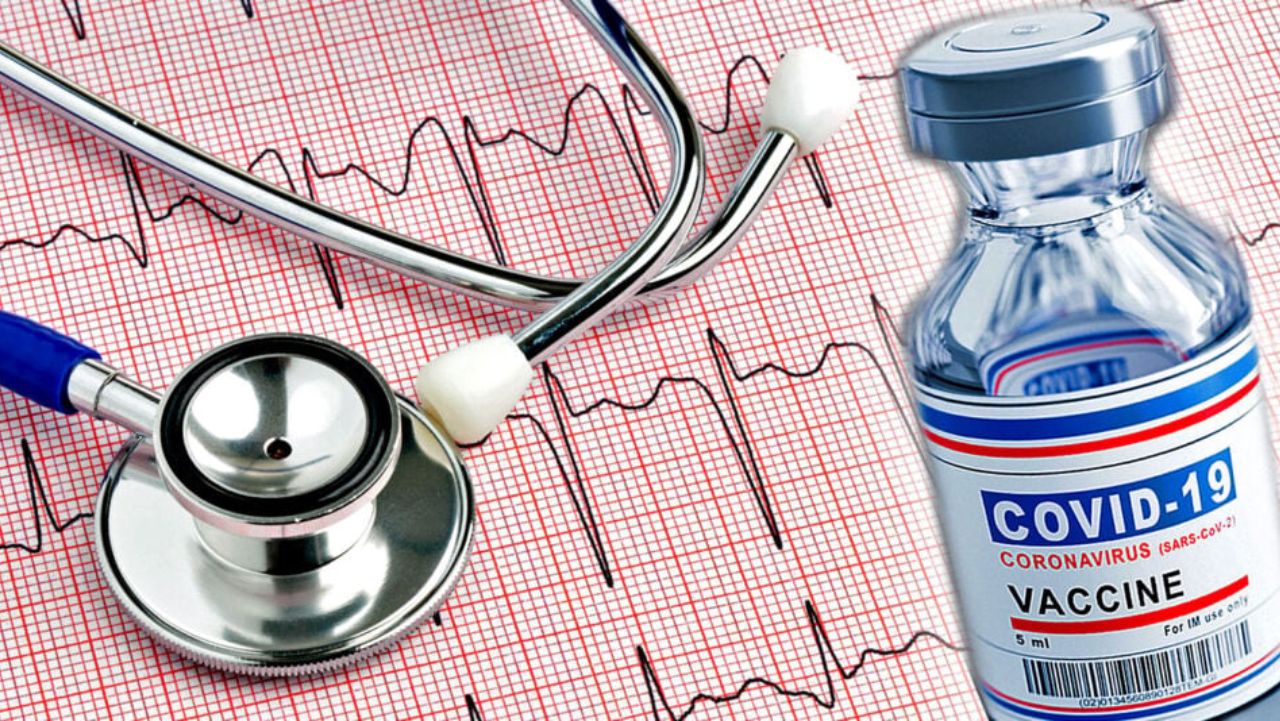Health
27% of Saudis in ‘Bombshell’ Study Experienced Heart Issues After mRNA COVID Shots
Many of them required hospitalization or intensive care.

This article originally appeared on The Defender and was republished with permission.
Guest post by John-Michael Dumais
More than a quarter of participants in a study from Saudi Arabia reported cardiac complications after receiving mRNA COVID-19 vaccines, and many of them required hospitalization or intensive care.
The study, led by microbiologist and immunologist Muazzam M. Sheriff and colleagues at Ibn Sina National College for Medical Studies and King Faisal General Hospital, revealed that 27.11% of the surveyed individuals experienced heart-related issues post-COVID-19 vaccination.
The onset of cardiac complications varied among participants, with 14.55% experiencing symptoms within one month of vaccination and others reporting issues up to 12 months or longer.
TrialSite News reported on the “bombshell Saudi Arabian study” on Wednesday. Founder, Daniel O’Connor, told The Defender that while the study has limitations and was designed to look for cardiac complications, “The rate of hospitalized cases was certainly notable, especially given the existing cardiac (myocarditis/pericarditis) signal associated with the vaccines.”
Cardiologist and epidemiologist Dr. Peter A. McCullough said that in addition to the large number of cardiovascular symptoms warranting hospitalization, 15.8% landed in an intensive care unit (ICU).
“More than half of subjects indicated they were influenced by a healthcare professional or government agency to get vaccinated,” McCullough told The Defender. “Never in recent times has there been such a cardiotoxic vaccine released on the public.”
Highlighting the growing concern surrounding the potential long-term effects of COVID-19 vaccines on cardiovascular health, O’Connor said, “The surge in cardiac-related incidents in the news over the last year or two doesn’t comfort one either.”
9.45% required medical care for more than 12 months
The Saudi Arabian study, published in the medical journal Cureus, employed a cross-sectional design and recruited 804 participants (379 men, 425 women, ages 18 and above) who had received at least one dose of an mRNA COVID-19 vaccine (Pfizer-BioNTech, Moderna or both — 58 took a different brand).
Nearly 40% took just one shot.
Participants completed a culturally adapted questionnaire covering demographic details, vaccination history, health conditions and perceptions related to the vaccines.
The onset of cardiac complications for the 27.11% of affected participants varied, with 14.55% occurring within one month of vaccination, 6.97% between one and three months, and others experiencing issues up to 12 months or more after receiving the vaccine.
For the 15.8% admitted to critical care units and 11.44% to general hospital wards, inpatient treatment lasted from less than one day to several weeks, with 8.33% spending between four and seven days in the hospital.
Treatment for cardiac complications was ongoing for many participants, with 9.45% receiving medical care for more than 12 months and 7.11% undergoing continuous treatment at the time of the survey.
Sixty-five percent of subjects reported being “neutral,” “somewhat not confident” or “not confident at all” on the safety of mRNA vaccines, while only about 20% said they believed their cardiac symptoms were “strongly related” or “somewhat related” to the vaccines.
The study also found high rates of pre-existing health conditions among the participants, including diabetes (48.26%), hypertension (56.72%), obesity (39.15%) and sedentary lifestyle-related issues (22.14%).
These comorbidities may have contributed to the increased risk of cardiac complications following mRNA vaccination, according to the study authors.
“Despite the bias of recruitment strategy to find patients with cardiovascular side effects from mRNA, these are large percentages requiring hospital and or ICU care,” McCullough said.
‘Seems like an awfully high rate’
“More data are needed on these cases including diagnosis, treatment and outcomes such as recurrent hospitalization and death,” he added.
The study’s authors emphasized the need for further investigation into the specific risk factors and biological mechanisms that may contribute to developing cardiac complications following vaccination.
TrialSite News called it “a strong study in regard to methodology, relevance, and ethical considerations,” noting the authors seemed to “downplay the magnitude of the response,” despite what “seems like an awfully high rate” of cardiac complications.
-

 Health3 days ago
Health3 days agoFighting Cancer with Fenbendazole: Big Pharma’s Worst Nightmare
-

 Health2 days ago
Health2 days agoWhat Have Vaccines Done to Us? The Truth is Disturbing
-

 Health3 days ago
Health3 days agoNew WEF Report Reveals the Global Elites’ Shocking Plan to Enforce Vaccination
-

 News1 day ago
News1 day agoNikki Haley Reveals Her New Job After Dropping Out of 2024 Presidential Race in Disgrace
































